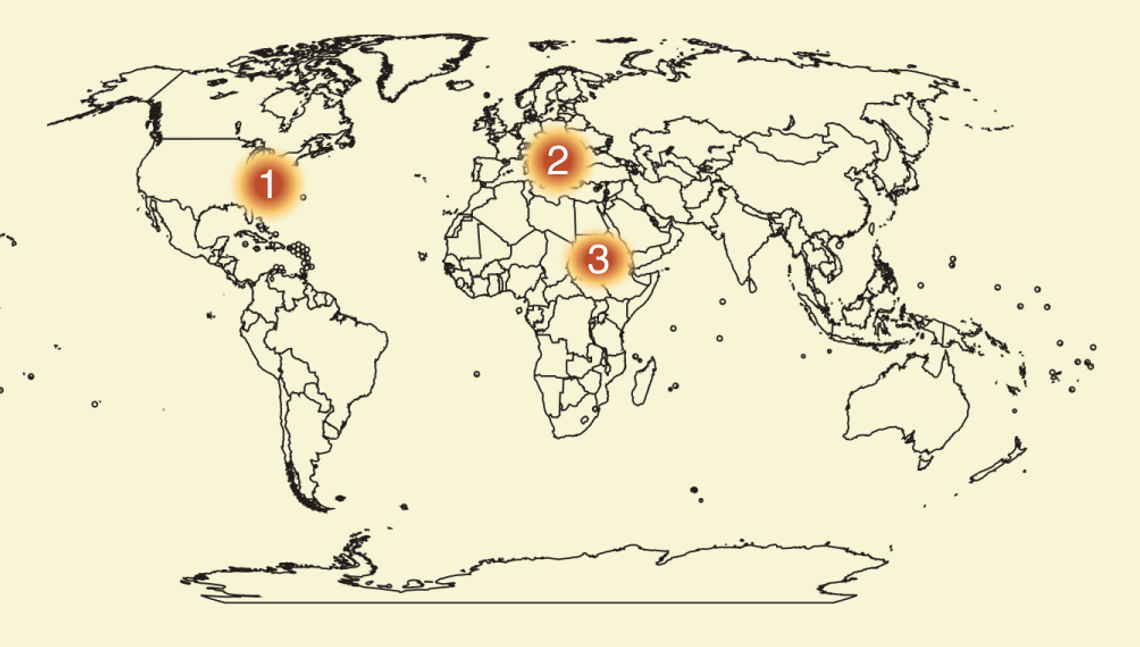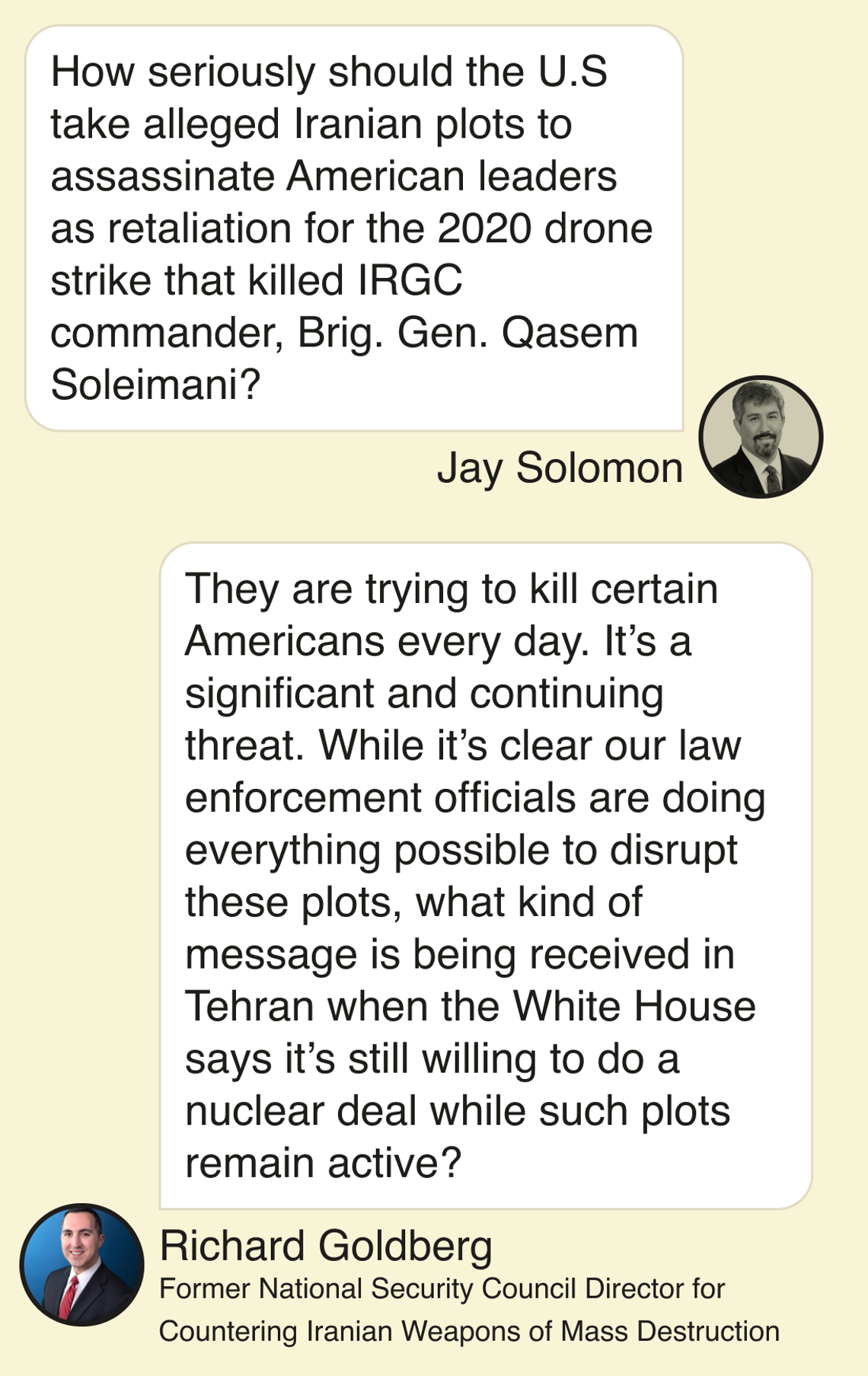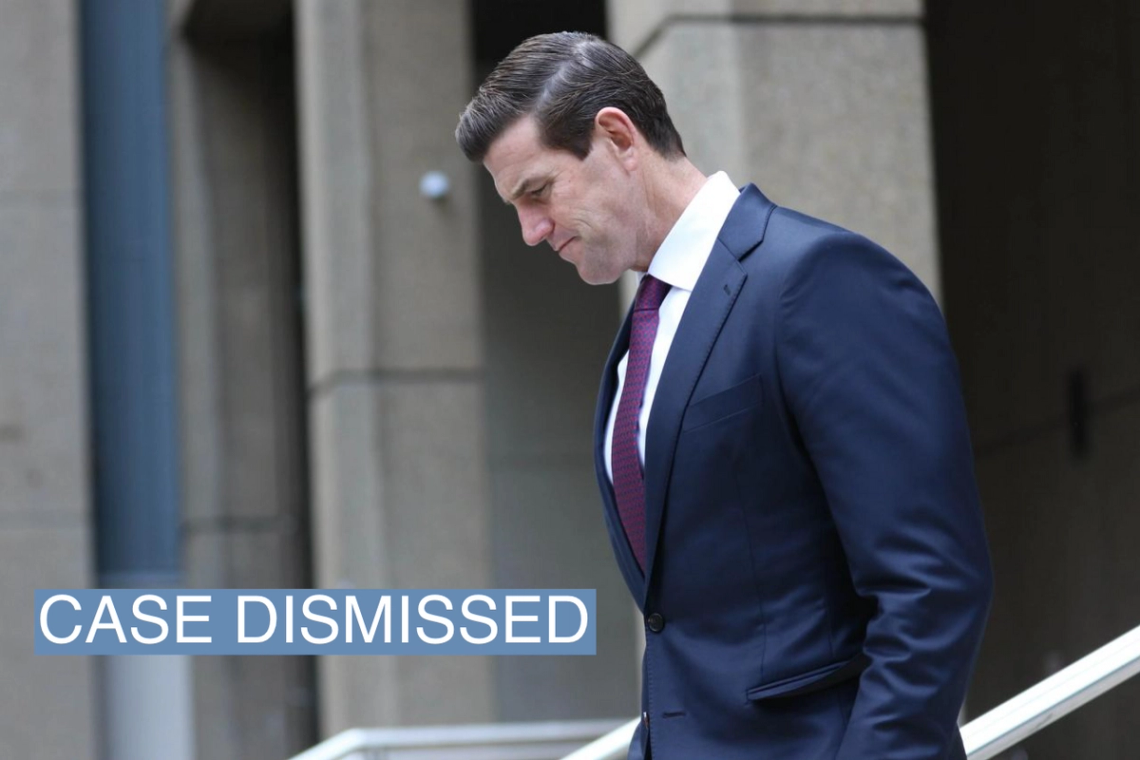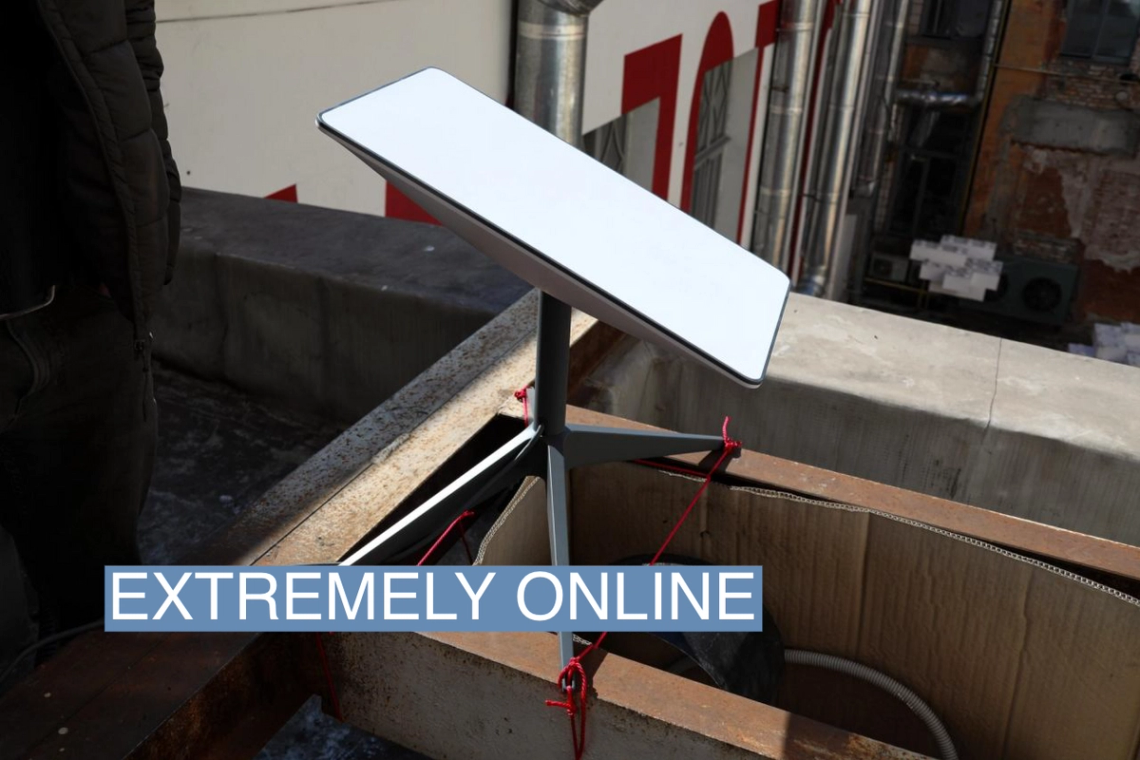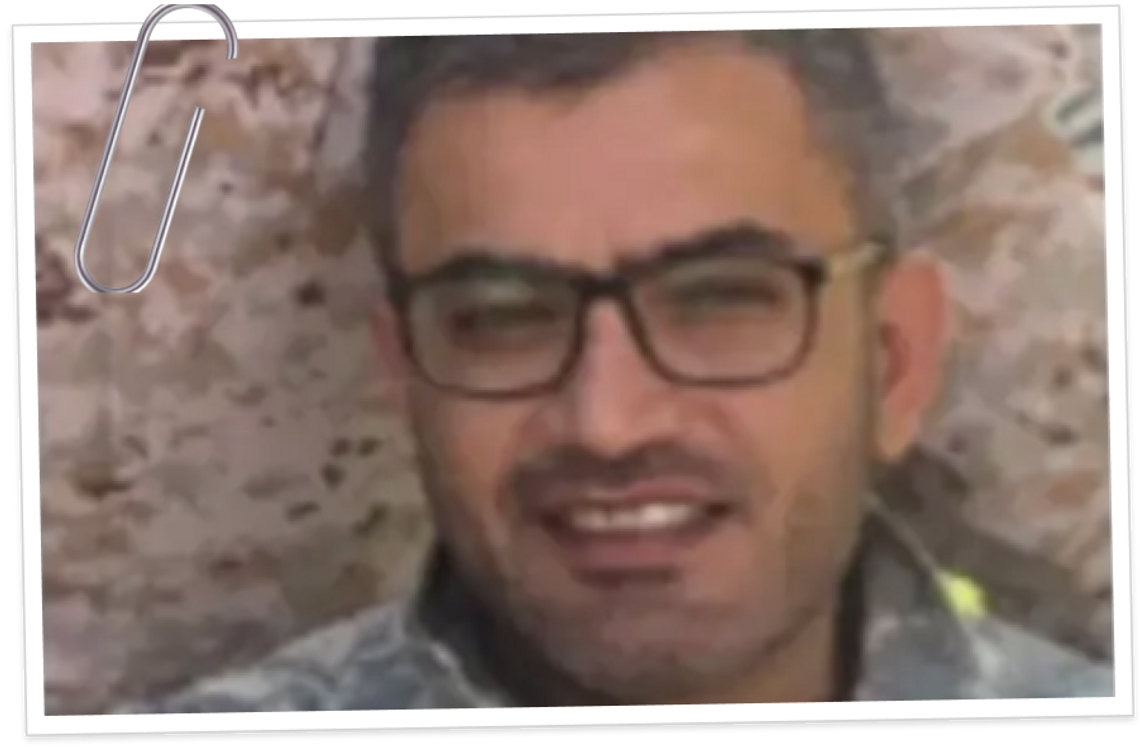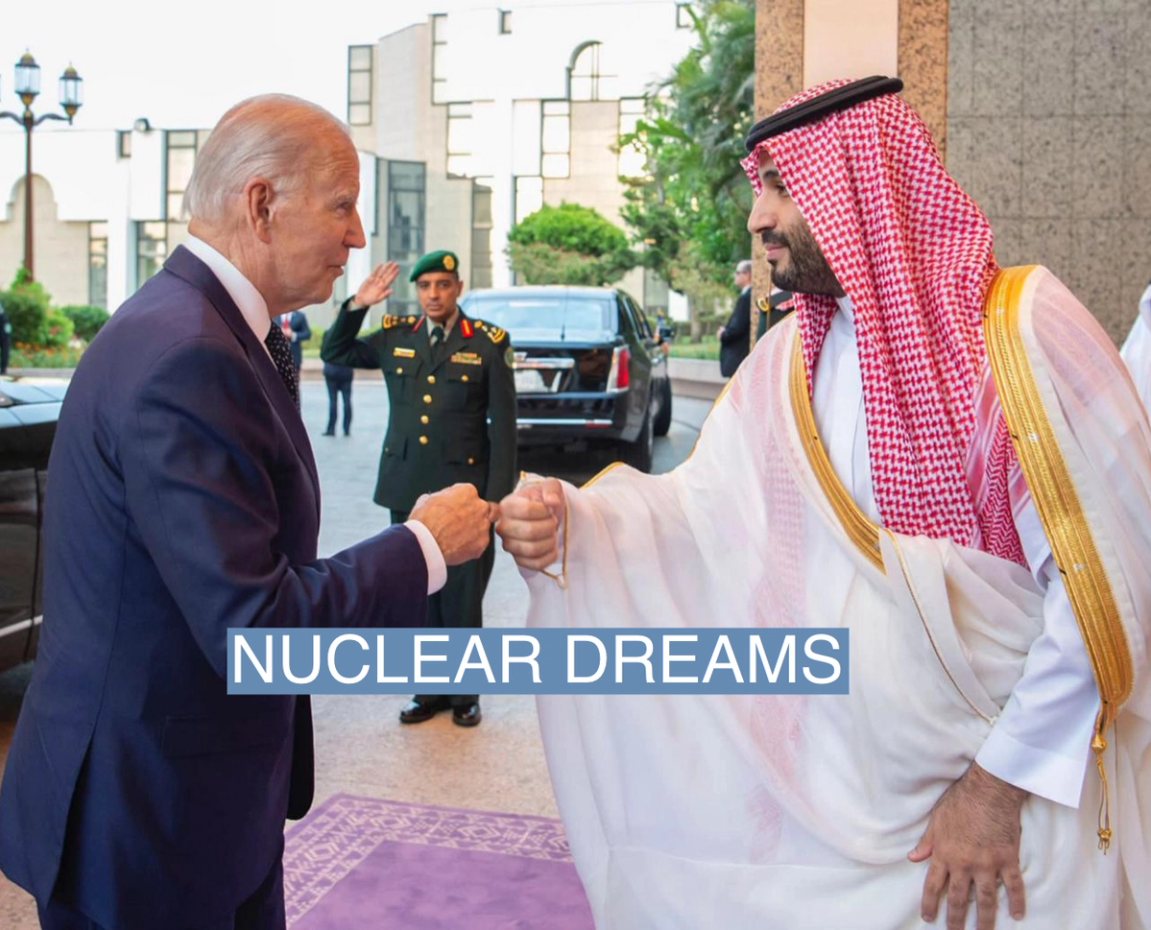 Saudi Press Agency/UPI/Shutterstock Saudi Press Agency/UPI/ShutterstockTHE SCOOP Riyadh has proposed to visiting American leaders developing a joint U.S.-Saudi project to build the country’s civilian nuclear energy program, four people briefed on the plans told Semafor. The project — referred to as “nuclear Aramco” — is designed to bolster Saudi Arabia’s ambitions to produce, and potentially export, atomic energy, while also addressing U.S. and international concerns about the proliferation of nuclear weapons technology. The Biden administration has been holding discussions with Riyadh in recent months about defense and economic cooperation, as well as potentially normalizing diplomatic relations between the Saudis and Israel — a longstanding goal of U.S. foreign policy. Crown Prince Mohammed bin Salman has said he would consider forging diplomatic ties with Israel if, in return, the U.S. offers to help Saudi Arabia develop a civilian nuclear energy industry, provides stepped-up security commitments, and greenlights new arms sales to Riyadh’s military, according to those briefed on discussions. The Saudis have specifically cited their state oil company, Aramco, as a model for how civil nuclear cooperation with the U.S. could progress. The company started in the 1930s as a partnership with John D. Rockefeller’s Standard Oil and was initially called the Arabian American Oil Co. Today it’s wholly Saudi-controlled and is among the world’s most profitable companies. Under this nuclear partnership, the Saudis have told interlocutors, an Arabian American Nuclear Power Co. could be formed that would give U.S. companies and entities a direct role in the development and oversight of nuclear power development in Saudi Arabia. But the enrichment of uranium would still occur inside its borders. “The Saudis say look: We will exploit the full economic value, but when it comes to enrichment … it could be an American facility, under American oversight, and secured by Americans,” said Mark Dubowitz, chief executive officer of the think tank the Foundation for Defense of Democracies, who’s met with senior Saudi officials in Riyadh seven times over the past year and a half. He added: “Obviously, there are huge concerns over providing enrichment to the Saudis and what that would mean for proliferation throughout the Middle East, amongst allies and adversaries.” KNOW MORE The U.S. has previously sought to ink a treaty with Saudi Arabia on civilian nuclear development known as a 123 Agreement, which requires Congressional approval and allows for the transfer of sensitive atomic equipment and materials. Such a deal would allow U.S. nuclear companies, like Westinghouse, to enter the rapidly growing Saudi market, and give American officials greater leverage to prevent material from being used for weapons development. The negotiations, though, have repeatedly stalled over Riyadh’s demand that it produce the nuclear fuel for its reactors on Saudi soil. The U.S. government has been seeking to make countries in 123 agreements source their fuel from foreign sources in order to prevent it from being diverted for military purposes. But Saudi Arabia, which says it possesses 7% of the world’s uranium reserves, says it wants to become a player in the international nuclear fuel market, even potentially an exporter to the United States. Saudi Arabia’s energy minister, Prince Abdulaziz bin Salman, told a conference this year that “the Kingdom intends to utilize its national uranium resources, including in joint ventures with willing partners, in accordance with international commitments and transparency standards.” The people who’ve discussed the nuclear Aramco idea with the Saudis recently tell Semafor that the issue is further complicated by Riyadh’s belief that it can simply turn toward China or Russia if the U.S. balks. Washington and Beijing are engaged in a heightened competition for influence across the Middle East and Asia. A decision by Crown Prince Salman to ally with China on nuclear power could permanently place Saudi Arabia in the Chinese camp, these people say. President Biden’s National Security Advisor Jake Sullivan traveled to Riyadh this month and met with the crown prince to discuss energy issues, the White House said in a statement. “We do not discuss diplomatic conversations … and would note that much of the reporting on this particular issue has been false and exaggerated,” a National Security Council spokesperson told Semafor. JAY’S VIEW It’s unclear if the Biden team would seriously consider the proposal. But it’s a reminder that the U.S. is facing nothing but hard choices as it tries to limit a nuclear arms race in the Middle East, driven by the rivalry between Riyadh and Tehran — a relationship that remains fraught despite their Chinese-brokered agreement in March to restore diplomatic ties. Israel, Iran’s arch enemy in the region, is believed to have a substantial nuclear weapons arsenal. Crown Prince Salman, who also serves as Saudi Arabia’s prime minister, has publicly stated that Riyadh will match any nuclear technologies Tehran develops, including, potentially, weapons. “Saudi Arabia does not want to acquire any nuclear bomb, but without a doubt if Iran developed a nuclear bomb, we will follow suit as soon as possible,” he told CBS in 2018. The nuclear agreement that U.S. President Barack Obama struck with Iran in 2015 would have left the country with a vast domestic enrichment infrastructure, endorsed by the United Nations. Senior U.S. officials say they remain committed to reviving a version of that deal, even though they also haven’t ruled out using force to neuter Iran’s nuclear program. And Salman is unlikely to settle for any option that leaves Saudi Arabia with less capability than its arch-rival. ROOM FOR DISAGREEMENT Robert Einhorn, who served as a top counter-proliferation official in the Obama and Clinton administrations, told Semafor that the risks of allowing enrichment in the Kingdom were simply too high, given the Crown Prince’s comments on nuclear weapons. Einhorn said Saudi Arabia could simply nationalize any joint-nuclear project developed with the U.S. and other Western countries. As an alternative, he developed a formula in 2018 that calls for the U.S. to sign a 123 Agreement with Saudi Arabia, but defers the issue of domestic enrichment for as long as 20 years. This would allow Washington and American companies to play a central role in developing Riyadh’s program, while still guarding against proliferation risks long-term. “I’d take that in a heartbeat,” he said. NOTABLE | 

